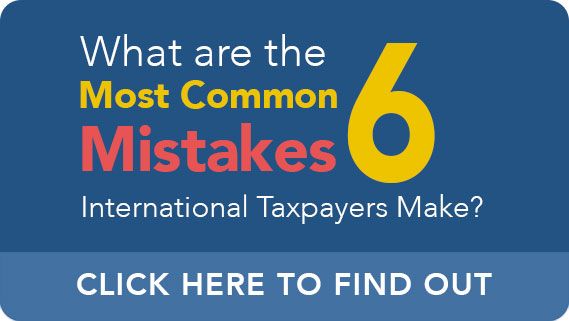Accountant for US Taxpayers Living Outside the United States
The old saying about death and taxes is true: even when you leave the country, the dreaded Internal Revenue Service still collects its due. Though many Americans living abroad believe that moving away from the U.S. relieves them of their tax obligation to their former country of residence, the reality is quite the opposite. Filing a tax return with the IRS is not only necessary for expatriates, but it is also made more complicated by the fact that they live abroad.
If you are a U.S. taxpayer living outside the United States, turning to an accountant with experience in international tax law can save you significant time, money, and stress. The team at U.S. Tax Help specializes in that very subject, and they are led by Ted Kleinman, a certified public accountant with more than 30 years’ experience in international tax preparation and planning. To learn how the accountants at U.S. Tax Help can assist you, or to set up your first consultation, call (541) 362-9127 or visit us online today.
Filing a US Tax Return While Living Abroad
Though it is commonly believed that moving away from the United States means you no longer owe taxes to the U.S. government, the truth is that the IRS expects all American citizens to file a tax return each year, regardless of where in the world they live. This fact sets the U.S. apart as one of only two countries to tax based on citizenship rather than location – Eritrea is the other. That being said, there are a few allowances made for expats with regard to filing taxes.
One advantage reserved for expatriates is that they are granted an automatic two-month deadline extension to file their tax return, with no request for an extension required. This means that Americans living abroad effectively have a June 15 deadline to file their tax return; however, any taxes owed to the government must be paid by the standard April 15 deadline, or interest will start accruing on that date.
In addition, American expats benefit from some key exemptions that can save a lot of money when tax time rolls around. Most prominent among these are the foreign earned income exclusion (FEIE), which allows you to exclude a significant portion of your income from taxation, and the foreign housing exclusion and deduction, which will be explained below. Each of these relies on the taxpayer passing one of two tests: either the bona fide residence test or the physical presence test.
The Bona Fide Residence Test and Physical Presence Test
The primary qualifier for the most popular expat exclusions and deductions is whether you have lived outside the U.S. for an appropriate length of time, a determination made through one of two tests. The first of these is the bona fide residence test, an examination by the IRS that takes into account the length and nature of your time abroad. To pass, you must show that you were a bona fide resident of a foreign country for at least the length of an entire tax year. For the most part, the agency uses information you provide on Form 2555, Foreign Earned Income, when making their ruling.
By comparison, the physical presence test is much simpler. To pass, the IRS requires that you be physically present in another country for at least 330 full days over a 1-year period. Those days do not need to be consecutive, and there is no examination into the purpose of the time you spent abroad.
Tax Exclusions for Expats Living Outside the U.S.
One of the two most common ways expats can reduce their tax burdens is by using the Foreign Earned Income Exclusion (FEIE) to limit the amount of foreign-earned income that is taxed by the IRS. As long as you pass either of the tests described above and are a U.S. citizen (or a resident alien, in some cases) likely qualify for this exclusion. It should be noted that the FEIE only applies to earned income – income from active employment, in contrast to income from sources such as rent, which are collected passively – and that the amount that can be excluded changes each year to adjust for inflation. In 2019, you could exclude up to $105,900 of foreign-earned income from taxation through the FEIE.
The other common exclusion that benefits expats is the foreign housing exclusion or deduction, which is similar to the FEIE in that you must pass the bona fide residence test or physical presence test to qualify. If you collect foreign earned income from an employer, you can probably use the exclusion; if you are self-employed, you may be able to use the deduction. If so, you can use any housing expenses you may have incurred living abroad to reduce the amount of taxes you owe the government. A skilled international tax accountant can explain which exclusions and deductions may benefit you the most.
Specialized Accountants Serving American Taxpayers Living Abroad
As complicated as the existence of an expat can become, easing the burden of U.S. taxes – both mentally and financially – can make the lives of Americans living abroad much easier; Ted Kleinman and his team can do just that. With decades of experience navigating international tax laws, the skilled accountants at U.S. Tax Help are standing by to answer all of your questions. Contact us today by visiting our website or calling (541) 362-9127 to set up a private consultation.
